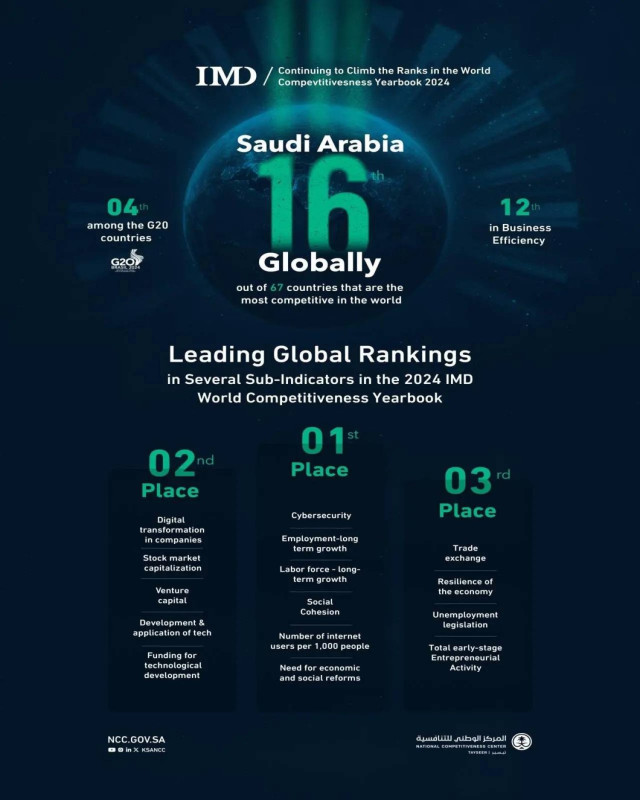The Kingdom of Saudi Arabia has been ranked as the 16th most competitive country out of 67 in the world, as per the latest report from the Swiss-based Institute for Management Development (IMD) World Competitiveness Yearbook.
This annual report provides benchmark services for both countries and companies, offering insights into the factors that contribute to competitiveness.
The report is prepared by the National Competitiveness Center in collaboration with relevant government agencies, according to the Saudi Press Agency.
This year's ranking represents an improvement of one position for the Kingdom, driven by advancements in business legislation and infrastructure. This places Saudi Arabia in 4th place among G20 countries.
The business efficiency axis specifically saw progress, moving from the 13th to the 12th rank. While infrastructure remains in its 34th position, the Kingdom continues to demonstrate strength in economic performance and government efficiency, maintaining its position within the top 20.
Dr. Majid Al-Qasabi, Minister of Commerce and Chairman of the National Competitiveness Center, attributed the positive results to the economic transformation process led by the Kingdom's government under the directives of Prince Mohammed bin Salman bin Abdulaziz Al Saud, Crown Prince and Prime Minister of Saudi Arabia.
The economic reforms implemented have propelled the Kingdom to top three positions in 24 key indicators. Notably, Saudi Arabia secured the global top spot in crucial areas such as long-term employment growth, social cohesion, long-term labor market growth, awareness about the need for economic and social reforms, cybersecurity, and internet user penetration per thousand residents.
Additionally, Saudi Arabia secured second place globally in indicators such as digital transformation in companies, stock market capitalization, venture capital availability, technological development and application, and access to financing for technical advancements.
The Kingdom also ranks third place globally in several areas, including trade and economic resilience.




















